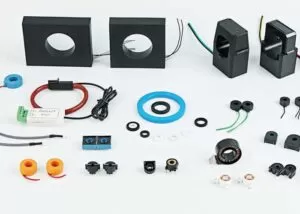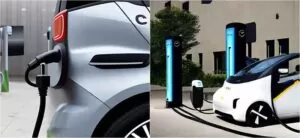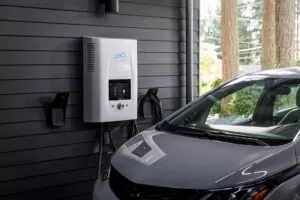Introduction to Current Transformers for EV charging
The world of electric vehicle (EV) charging is rapidly evolving, and with it, the need for reliable and efficient charging infrastructure. One key component in EV charging systems is the current transformer. In this article, we will explore the role of current transformers in EV charging, their unique features, advantages, and potential applications.
Understanding Current Transformers in EV Charging
Current transformers (CTs) are essential components in the electrical systems of EV charging stations. They serve to measure and monitor the electrical current flowing through charging equipment, enabling accurate billing, system protection, and load management.
Learn more for Application analysis of leakage protection in electric vehicle charging pile
Current Transformers: Features and Benefits
Current transformers stand out from other types of CTs due to their unique features and advantages. These include:
High Accuracy: current transformers deliver precise measurements, ensuring the correct billing of EV charging sessions and enabling proper load management.
Wide Operating Range: These transformers can operate efficiently over a broad range of current levels, making them suitable for a variety of charging applications, including both residential and commercial settings.
Safety and Protection: CTs offer advanced safety features, such as integrated residual current detection, which helps protect charging equipment and vehicles from potential damage.
Compact Design: The slim design of current transformers allows for easy installation in tight spaces, such as inside charging stations or electrical panels.
Applications of Current Transformers in EV Charging
Current transformers can be found in various EV charging applications, including:
Home Charging: Residential EV charging stations often utilize CTs to accurately measure and bill the energy consumed during charging sessions.
Public Charging Stations: Public EV charging infrastructure, such as fast chargers and Level 2 charging stations, use current transformers to manage the power load and monitor usage for accurate billing.
Fleet Management: Commercial and municipal fleets with electric vehicles rely on CTs to track energy consumption, manage load balancing, and optimize charging schedules.
Smart Grid Integration: As electric vehicles become more integrated with smart grids, current transformers play a critical role in monitoring and managing the flow of electricity between the grid, charging stations, and vehicles.
Selecting the Right Current Transformer for Your EV Charging Needs
When choosing a current transformer for your EV charging application, consider the following factors:
Accuracy Class: Select a CT with an accuracy class that meets your specific requirements for billing and load management.
Current Rating: Choose a transformer with a current rating that matches the maximum current your charging station can deliver.
Physical Dimensions: Ensure that the selected CT will fit within the available space in your charging equipment or electrical panel.
Safety and Certification: Verify that the current transformer meets all relevant safety and certification standards, such as UL or IEC.
Installation and Maintenance of Current Transformers
Proper installation and maintenance of current transformers are crucial for optimal performance and longevity. Some best practices include:
Professional Installation: Engage qualified personnel to install your CT, following manufacturer guidelines and adhering to local electrical codes.
Periodic Inspections: Schedule regular inspections to check for signs of wear, corrosion, or damage, and to ensure that connections remain secure.
Routine Calibration: Perform periodic calibration to maintain the accuracy and reliability of your current transformer.
Replace Damaged Components: If you discover any issues during inspections or calibration, replace the affected components promptly to maintain system safety and performance.
Finally
Current transformers are integral to the efficient operation and safety of EV charging systems. With their high accuracy, wide operating range, and advanced safety features, they have become an essential component in various charging applications, including residential, public, and fleet charging stations.
As the electric vehicle market continues to grow, the demand for reliable and accurate charging infrastructure will only increase. By understanding the role of current transformers and selecting the right one for your specific application, you can ensure that your EV charging station delivers the best possible performance and meets the needs of your customers and the evolving EV landscape.
As the industry progresses, it’s crucial to stay informed about new technologies and innovations in the realm of electric vehicle charging. By staying up-to-date and investing in the right equipment, you can ensure the long-term success of your EV charging infrastructure.







